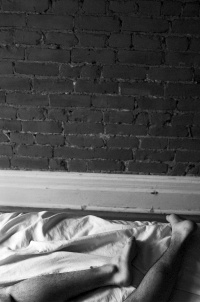More on Migraine and Restless Legs Syndrome (RLS)
A meta study was completed last year and just published, which yet again confirms the connection between migraine and restless legs syndrome (RLS). It’s nice to know you’re not alone, but what can you do to actually fight these frustrating symptoms?

What is RLS?
The National Institute of Neurological Disorders and Stroke begins their explanation of RLS this way:
Restless legs syndrome (RLS), also called Willis-Ekbom Disease, causes unpleasant or uncomfortable sensations in the legs and an irresistible urge to move them. Symptoms commonly occur in the late afternoon or evening hours, and are often most severe at night when a person is resting, such as sitting or lying in bed. They also may occur when someone is inactive and sitting for extended periods (for example, when taking a trip by plane or watching a movie).
Restless Legs Syndrome Fact Sheet
Many people can immediately identify with that explanation. So if you’re suffering from both migraine and RLS, what are some key things that you can investigate?
- Treat both migraine and RLS – don’t ignore either one. It will help both you and your doctor if you think about both conditions. There may be treatments that can help both. Medications taken for one may make the other worse. And treating one well may actually help fight the other.
- Check your iron levels. Low iron levels can be related to headache, migraine, and RLS. It’s simple to check iron and ferritin levels – read this for more: Is there a link between iron levels and RLS?
- Take a close look at the medications and supplements that you take. This should be done with a specialist familiar with RLS and migraine. Some medications may make RLS worse – such as Reglan, Benadryl, Largactil, Prozac, and Compro.
- Watch out for caffeine, nicotine, and alcohol. Again, discuss the options with your doctor. Consider cutting out nicotine, and keep your afternoons and evenings caffeine-free. But you may need to completely avoid all three.
- Moderate activity. Both migraine and RLS can be triggered by sudden, vigorous activity. But try starting with some mild stretches and a half-hour walk in the evening.
- To bed – to rise – at the same time. Try to maintain a regular sleep schedule, which can be beneficial in both conditions. Avoid looking at screens before bed – see if you can find one of those old fashioned paper books. A warm bath may also help.
- A balanced diet – beware of processed foods and sugar. There are many reasons why these may make migraine and RLS symptoms worse.
- Other treatments and medications. There are many specific treatments and medications for RLS that people have found to be helpful. If your condition is moderate or severe, talk to your doctor or a specialist and consider your options. But remember, make sure your doctor is aware that you also have migraine.
Fore more information:
